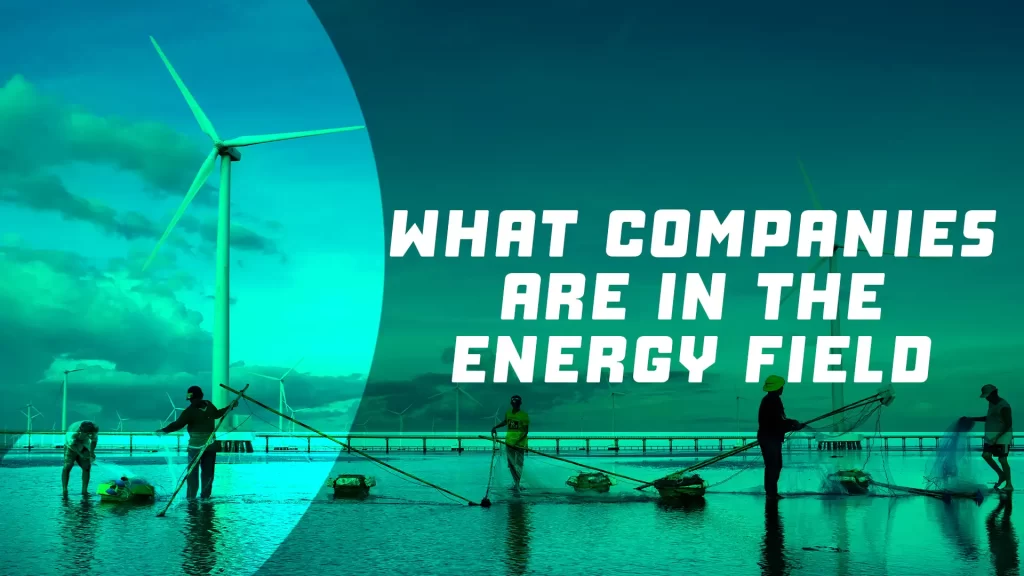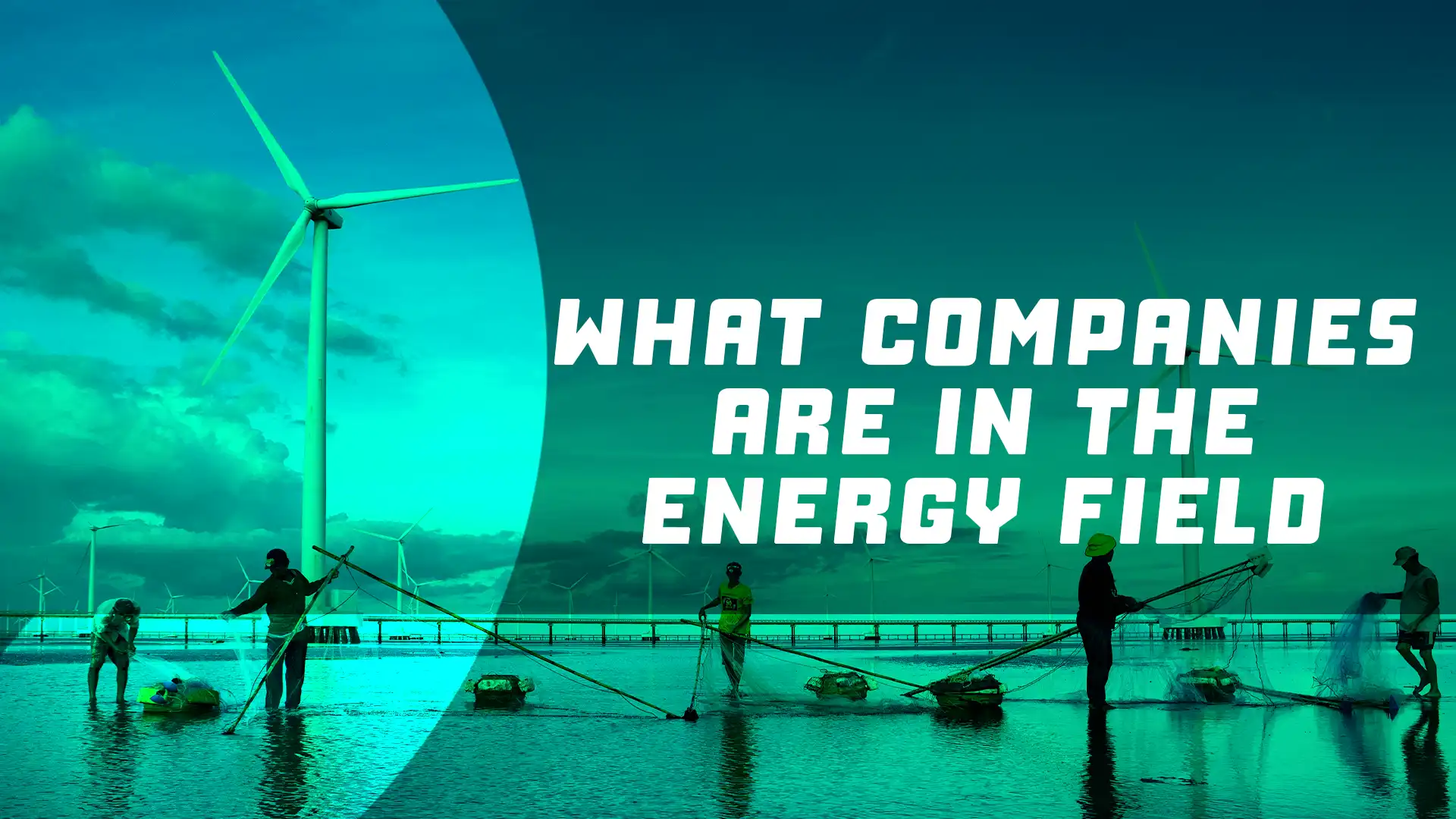what businesses operate in the energy sector, The energy sector, which plays a significant role in the global economy and powers our homes, vehicles, and businesses, is responsible for providing these services.
Numerous businesses have formed in the energy sector to suit the demands of customers all around the globe as the need for energy keeps rising. In this post, we’ll examine a few of the well-known businesses that work in the energy industry in more detail.
The following is a list of businesses involved in the energy sector:
ExxonMobil
One of the biggest oil firms in the world, ExxonMobil has a market value of more than $200 billion. The business is active across the board in the energy sector, including petrochemicals, natural gas, and oil. It has operations in more than 50 nations and a proven track record of giving stockholders steady profits.
BP
British Petroleum, or BP, is another significant participant in the energy sector. The business is a major producer of oil, natural gas, and renewable energy with activities in over 70 nations. BP plans to become a net-zero firm by 2050 and has recently made large investments in renewable energy sources including solar and wind.
Shell Royal Dutch
An international energy business with operations in more than 70 nations is Royal Dutch Shell. Oil and natural gas exploration, production, and distribution are the company’s main lines of operation. But it has also poured a lot of money into green energy projects like wind and biofuels. As part of its commitment to lowering its carbon footprint, Shell has set a goal of being a net-zero organization by the year 2050.
Chevron
One of the biggest oil firms in the world, Chevron has activities in more than 180 nations. Oil and natural gas exploration, production, and distribution are the company’s main business activities. It has, however, also made investments in alternative energy technologies including geothermal and biofuels. Chevron has committed to lowering its emissions of greenhouse gases and set a goal of reaching net zero by 2050.
Total
The French global energy firm Total has operations in more than 130 nations. The business produces and distributes petrochemicals, natural gas, and crude oil. Total has recently made large investments in renewable energy sources including solar and wind. The corporation has set a goal of lowering its carbon footprint by 40% by 2030 and aspires to achieve net-zero status by 2050.
Eni
Italian global energy corporation Eni has operations in more than 70 nations. The business is involved in the production, distribution, and exploration of oil and natural gas. Additionally, it has made large investments in alternative energy technologies including solar, wind, and biofuels. By 2050, Eni wants to be a net-zero business and has set a goal of cutting its greenhouse gas emissions by 80%.
EDF
Electricity generation and distribution are the primary business activities of EDF, a French multinational electric utility. The business is a major producer of nuclear energy and has operations in over 30 nations. On the other hand, it has also made large investments in renewable energy sources like solar and wind. EDF has set a goal to cut its greenhouse gas emissions by 40% by 2030 and to become a net-zero business by 2050.
Summary of what companies are in the energy field
Our houses, cars, and businesses are all powered by the energy sector, which is a vital part of the global economy. In order to lessen their carbon footprint, the businesses listed in this article—some of the biggest names in the energy industry—have all made large investments in renewable energy. These businesses will be crucial in ensuring that we have access to dependable and clean energy sources as the globe moves toward a more sustainable future.
What businesses operate in the energy industry? What companies are in the energy field operate?
The energy sector is home to a variety of business models that serve various market niches. The following are some of the most typical business kinds in the energy industry:
Companies in the upstream sector: These businesses are engaged in oil and gas exploration and production. They are in charge of finding and removing oil and gas deposits from the ground or offshore locations.
Midstream Companies: These businesses handle the storage and transportation of oil and gas. They manage the terminals, storage facilities, and pipelines that move gas and oil from the producing sites to the refineries or final consumers.
These businesses are engaged in the distribution, processing, and refining of oil and gas. They run petrochemical factories, retail stores, and refineries that deliver oil and gas products to end customers.
Companies engaged in the production of renewable energy sources, including wind, solar, hydropower, geothermal energy, and biomass. They run plants that use renewable energy to make biofuels or electricity.
Utilities for electricity: These businesses produce, transmit, and provide power to consumers. They manage the power plants, transmission lines, and distribution systems that provide energy to residences, commercial buildings, and industrial facilities.
Energy service companies (ESCOs): These organizations provide energy-related services, such as energy audits, energy management, and improvements to energy efficiency, to assist families and businesses in lowering their energy expenses and use.
Energy Trading Companies: These businesses deal in energy products including electricity, gas, and oil. On international markets, they purchase and sell energy derivatives, options, and futures.
The energy sector, which includes businesses engaged in the production, transmission, processing, and distribution of different energy sources, is a diversified industry overall. Renewable energy firms and electric utilities are assuming a greater role in the energy industry as a result of the rising demand for clean and sustainable energy.
Which corporation produces the most energy?
The Saudi Arabian Oil firm, often known as Saudi Aramco, is now the largest energy firm in the world. As of 2021, Saudi Aramco was the most valuable publicly listed business in the world with a market valuation of approximately $1.8 trillion. The company’s main business activities include oil and gas exploration, production, refining, and distribution.
It has proven oil reserves of more than 260 billion barrels and runs several refineries, petrochemical facilities, and distribution networks globally. In order to diversify its business and lessen its carbon impact, Saudi Aramco is also investing heavily in renewable energy sources like wind and solar.
What companies are in the energy field and Which energy companies are the best?
There are a number of leading energy businesses that operate in various industrial sectors. According to their market capitalization and revenue, the following energy businesses are among the biggest in the world:
Saudi Arabian Oil firm (Saudi Aramco): With a market valuation of more than $1.8 trillion, Saudi Aramco is the largest energy firm in the world.
ExxonMobil: ExxonMobil is a Texas-based, global American oil and gas corporation. Its market value is about $250 billion, and it brings in over $180 billion in revenue annually.

Royal Dutch Shell is a British-Dutch multinational oil and gas firm that does business in more than 70 nations. Its market value is about $170 billion, and its yearly revenue is close to $180 billion.
BP: With operations in over 70 nations, BP is a global oil and gas business based in the United Kingdom. Its market value is above $100 billion, and it brings in almost $240 billion in sales annually.
Chevron Corporation: With operations in more than 180 countries, Chevron is an American global energy firm. Its market value is over $200 billion, and it brings in over $140 billion in revenue annually.
TotalEnergies is a French international energy firm that does business in more than 130 nations. Its market value is about $125 billion, and it brings in almost $180 billion in sales annually.
Gazprom is a worldwide energy business with headquarters in Russia that focuses on the production and delivery of natural gas. Its market value is about $70 billion, and it brings in almost $120 billion in sales annually.
There are several more illustrious participants in the market that compete in various market areas, but these are only a few instances of the top energy firms in the globe.
What are the seven primary energy sources?
These are the top 7 energy reserves:
Chemical Energy: This is the power held inside a molecule’s chemical bonds. Chemical energy is released through chemical processes like digestion and combustion.
The energy involved in the movement of particles inside a material is referred to as thermal energy. Heat, a common way to convey thermal energy, may move from one item to another by conduction, convection, or radiation.
Nuclear energy is the power held inside an atom’s nucleus. Nuclear processes, such as nuclear fission or fusion, release nuclear energy.
Electrical energy is the force that causes electrons to travel through a conductor, such a wire. Electronic equipment is powered by electrical energy, which is also utilized to transfer electricity across great distances through power lines.
The energy connected to an object’s location in a gravitational field is known as gravitational energy. When an item falls or travels from a higher to a lower place, gravitational energy is released.
Elastic energy is the stored potential energy in compressed or stretched objects like springs. The release of elastic energy occurs when the item assumes its original form.
Radiant energy is the force that drives electromagnetic waves like radio waves and light. Applications for radiative energy include solar energy, illumination, and communication.
These seven energy reserves have the ability to change forms and are essential for many natural and artificial processes, including the production, movement, and storage of energy.

Is the energy sector expanding?
Yes, the energy sector is expanding and changing quickly. Due to population expansion, urbanization, and economic development in developing economies, it is anticipated that the world’s energy consumption would keep rising. Renewable energy sources are being developed and used at the same time that there is a rising awareness of the need to cut carbon emissions and alleviate the effects of climate change.
Investments in renewable energy sources including wind, solar, hydroelectricity, and geothermal energy are rising, which is a sign of the energy sector’s expansion. Despite the difficulties caused by the COVID-19 epidemic, the International Energy Agency (IEA) reports that renewable energy capacity additions reached a new record in 2020. Additionally, according to the IEA, only renewable energy will increase in 2020; all other energy sources, such as coal, oil, and gas, are predicted to decrease.
Additionally, the energy sector is developing to become more decentralized and digitized. Greater integration of renewable energy sources and improved energy efficiency are made possible by the development of smart grids, energy storage technologies, and sophisticated analytics.
Overall, it is anticipated that the energy sector will keep expanding and evolving as it responds to fresh technical, commercial, and environmental possibilities and problems.
Which nation produces the most energy?
The United States is now the top energy producer in the world. The United States generated more energy than any other nation in 2020, according to the International Energy Agency (IEA), with 101 quadrillion British thermal units (Btu). This covers all forms of energy production, including those derived from nuclear, renewable, and fossil fuels.
With a large output of oil, natural gas, coal, nuclear energy, and clean energy sources like wind and solar, the United States has a broad energy mix. The nation exports a lot of energy, especially oil and natural gas.
China, Russia, Saudi Arabia, and Canada are further nations that generate a considerable amount of energy. However, due to rising production from shale formations and the ongoing development of renewable energy sources, the United States continues to be the world’s greatest energy producer, and its energy output is predicted to expand in the years to come.
FAQ
What businesses operate in the energy sector?
A lot of businesses operate in the energy sector, which includes a variety of subsectors including oil and gas, renewable energy, utilities, and more.
What are some examples of businesses in the oil and gas industry?
A few well-known businesses in the oil and gas industry include ConocoPhillips, BP, ExxonMobil, Chevron, and Royal Dutch Shell.
What are some instances of businesses in the field of renewable energy?
A few businesses in the field of renewable energy include First Solar, Vestas, NextEra Energy, SunPower, and Tesla.
What examples do you have of utility companies?
Dominion Energy, Duke Energy, Southern Company, National Grid, and American Electric Power are a few utility firms.
Do any businesses operate in various sub-sectors of the energy industry?
A: Some businesses do operate in various subsectors of the energy industry. For instance, in addition to its conventional oil and gas activities, BP has a developing renewable energy section. Shell also has a department dedicated to renewable energy and a company that specializes in electric car charging.
Are there any new or tiny businesses in the energy sector?
A: There are a lot of small and new businesses in the energy industry, especially in the renewable energy sector. Sunnova, Stem, Enphase Energy, and CleanChoice Energy are a few examples.






